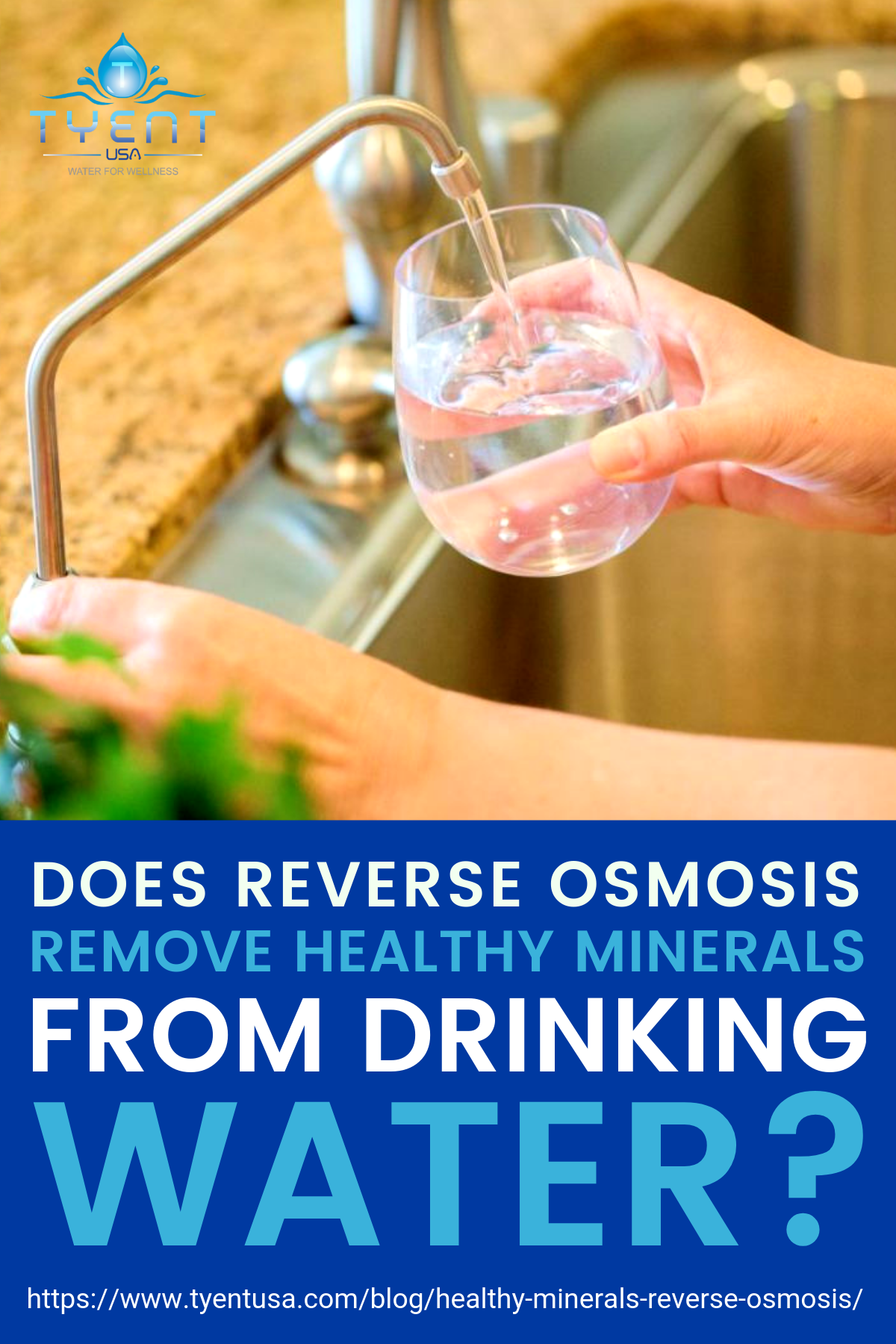Reverse osmosis can remove both inorganic and healthy minerals, impurities, and salts from water but is this process doing more harm than good for drinking water?
RELATED: 8 Ways Your Drinking Water May Be Killing You
Reverse Osmosis: Does It Do More Harm Than Good for Healthy Minerals in Water?
What Is Reverse Osmosis?
Reverse osmosis is a type of water purification technology which makes use of a semi-permeable and thin membrane which have tiny pores. These holes filter pure water and reject larger molecules, like dissolved salts and other impurities, like bacteria.
Reverse osmosis has been a recognized technology since the ’60s, and it’s used for producing highly purified water for different industries. These include food and beverage processing, drinking water systems, seawater desalination, industrial boilers, pharmaceutical production, cosmetics, and many other applications.
How Does Reverse Osmosis Work?
Reverse osmosis is a continuously operating water treatment technology and filtration system. It makes use of pressure to pass source water through a thin, porous membrane to separate impurities from water.
It essentially reverses the principle of osmosis, which is the natural tendency of water with dissolved minerals and salts to flow through a membrane from lower to higher salt concentration.
Reverse osmosis is also a naturally occurring process. Plants use this process to absorb water and nutrients from the soil.
In humans and some animals, kidneys use osmosis in absorbing water from the blood.
In a reverse osmosis system, pressure from a pump overrides natural osmotic pressure. This forces feedwater with lots of dissolved salts and other impurities to flow through a sophisticated semipermeable thin membrane.
The product of a reverse osmosis process is highly purified water. The rejected impurities and salts from the water flow from the system and drain or onto other processes.
RELATED: 3 Reasons To Think Before You Drink Reverse Osmosis Water
Does Reverse Osmosis Remove Healthy Minerals from Drinking Water?

Reverse osmosis removes more than 90% of all the contaminants in water, including minerals from the drinking water supplies. It can do so because their molecules are much larger than water molecules.
The subject of reverse osmosis and minerals in water has created debate and disagreement among water researchers and health professionals. The World Health Organization clarified that the majority of healthy minerals the human body needs come from food or supplementary sources and not from drinking tap water.
Additionally, some minerals in water can be harmful to our health. Tap water contains various inorganic minerals which our bodies can’t absorb.
Inorganic minerals in our tissues can lead to a wide array of degenerative diseases. They can cause kidney stones, gallstones, glaucoma, hardening of the arteries, arthritis, diabetes, cataracts, emphysema, and obesity.
What Kind of Minerals Are Found in Water?
The two types of minerals in water are organic and inorganic. The human body has a biological and natural affinity for organic minerals.
Most of the organic minerals for our body to function well come from dietary plant foods. These foods convert inorganic minerals from the soil into a useful organic mineral.
When an organic mineral derived from a plant food source enters the stomach, it must attach to a specific protein-molecule so the body can absorb it. The organic minerals, then, gain access to the organs where they are needed.
Does Reverse Osmosis Have Any Effect on Water pH Levels?
Water pH level automatically changes when water is ingested and comes into contact with the food within the digestive system. Stomach acid, with a pH level of 2, is several times more acidic than reverse osmosis water (pH 6-8).
The human body constantly regulates pH levels so, under normal circumstances, water will always maintain a neutral 7.4 pH balance.
Reverse osmosis treats and filters water so it becomes clean and pure for drinking or industrial use. This process can remove organic, inorganic, and healthy minerals from water.
The catch is exactly that. You’re drinking water that’s been stripped off of the good stuff.
For drinking water that’s packed with minerals, try Tyent water ionizers. There’s always a model that will suit your needs.
What water filtration system do you personally like to use? Share them with us in the comments section below!
Up Next:
- World Water Day 2019: “Leaving No One Behind” Without Safe Water
- 8 Types Of Water To Drink
- 101 Reasons To Love Tyent Water Ionizers: Health Benefits And More



![The Dangers of Reverse Osmosis Water [2024] hydrogen water](https://www.tyentusa.com/blog/wp-content/uploads/2020/08/Screenshot-2024-09-08-083127-150x150.png)
![RO Water System: Everything You Need to Know [2025] Screenshot 2024-11-19 045831](https://www.tyentusa.com/blog/wp-content/uploads/2024/11/Screenshot-2024-11-19-045831-150x150.png)

The process of osmosis is not a purely biological function and so it cannot be called natural or unnatural. In RO filtering process it is a chemical/mechanical process. The beauty of osmosis in natural systems is that a pressure differential does not need to be created in order to move water from one place to another (like as in absorbing water in plants). Reverse osmosis is simply water finding its ‘natural’ balance across a membrane given different salt concentrations and pressures (and other temperature, dissolved solids and ionic parameters).
Hi, Shawn. Thank you for the informative and insightful comment. What we want to draw attention to in this article is reverse osmosis (RO) as a water purification/filtering method. We do try to point to the fact that drinking RO water on a short-term basis is frequently necessary and in some cases, life-saving. Indeed, most people would not find that their health is adversely affected by drinking RO water for a very short, limited period of time in an emergency situation.
We absolutely support the short-term use of RO water systems in the field and in emergencies – they can be vital in so many situations. However, the long term use is not good at all and can be very harmful. The World Health Organization (WHO) took a comprehensive look at minerals in water and the potential risks of reverse osmosis. Ultimately, we align our view with the WHO statement: that long-term consumption, “has a definite adverse influence on the animal and human organism.”
We are very happy to answer any questions that you have about the relative merits of a water ionizer. Give our water ionizer experts a call at 855-893-6887. Thank you once again for your comments and interest.